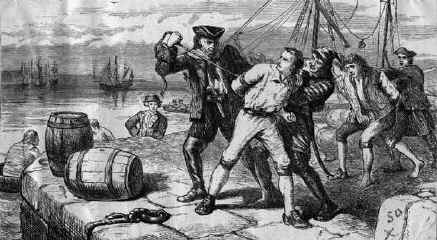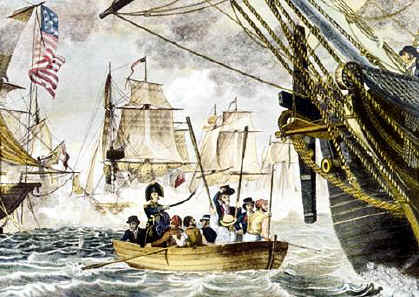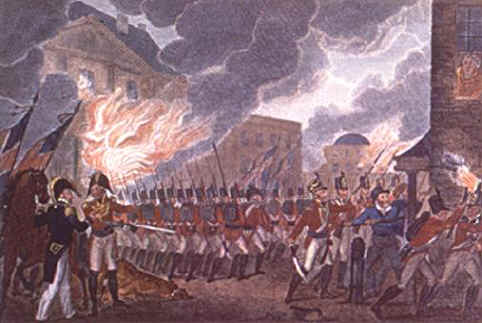

| Home | Guests | Registration | Hotel | Programming | Concom |
| News | Past UK Filkcons | PRs | Members | Misc. | FAQ |

![]()

We'll place our Frequently Asked Questions here... as soon as we're asked something more than once. Currently, the only questions falling in that category are:
Question: What is the best way to get around London if we plan to extend our vacation before and/or after the convention?
Here are some tips on London Transport for those spending time in London before or after the convention.
Fares on the Tube and buses have been restructured so single and return fares quickly add up. You are almost always going to be better buying a Travelcard.
Perhaps more importantly, Transport for London is aggressively trying to get people to use the Oystercard Smartcard. Oystercard fares can be half the cash fare, as well as automatically capping at the Travelcard rate if you use them enough in a given day. If you live outside the UK, you will need to use the Prepay option. You can get one at the Tube stores at Heathrow or at Victoria station, and can get more information at http://www.tfl.gov.uk/tfl/fares-tickets/2006/oyster/general.asp
Thanks to Lissa Allcock for suggesting we include this information.
Question: "Why is the 2006 British Filk Convention being run by a bunch of Americans?"
Answer: The ever-growing number of "Evil Americans" who show up consistently to the British Filkcon, lured across the great waters by beer, tea and music, looked into a future wherein loomed the 2005 WorldCon in Glasgow. They anticipated that the usual suspects who run British Filking would be too exhausted after running filking at a world con to have to then run a filkcon a few months later. So, these same assuming and Uppity Colonials put together and won a bid for the 18th British
Filkcon.
AND
Question: "But aren't many of these same Uppity Colonials also now running the filking at the WorldCon in Glasgow?"
Answer:
Yeah... We said "assuming," not "smart," now didn't we?
Send your questions to The Concom
What Is This "1812" Thing, Anyway?
When the overly-USized con committee announced their choice for the convention name, we were met with a multitude of blank stares. "What is this 1812 thing," many were heard to ask. "We get the 12-tone part. What, pray, is the significance of the date in question?"
This was a little amazing to those of us who believe the world revolves around US history (and even to the ones of us who can name the Monarchs of England but not the Presidents - of course, this is because there's no nifty little poem about the Presidents, but that's just an excuse). We ran immediately to the only source for British history that really matters,
1066 and All That by the incomparable WC Sellar and RJ Yeatman. Astonishingly, 1812 does not appear at
all! We had not expected it to be a Memorable Date (those being, of course, 55 BC and AD 1066), but we would have been consoled to find it at least to be a Date Mentioned in a Footnote. It was not to be.
Therefore, here is a brief history of why a pun on that date seemed to be such a good idea to us and yet a rather confusing one to most everyone
else:
A number of years after the granting/winning (choose one based on your nationalist leanings) of Independence to/by the former American Colonies, Great Britain intensified its post-diplomatic skirmishes with an upstart Frenchman by the name of Napoleon Bonaparte. Some scholars believe that this was because the French were unable to read the new stationery printed up in 1801 that referred to the more complex national identity of the "United Kingdom of Great Britain and Ireland". Whatever the reason, The Power of the Seas
™ soon became the order of the day.
As in all navies, though, British sailors soon became dissatisfied with their lot. The food rations - pudding course in particular - headed the list of grievances, and thus those sailors who left the Royal Navy without permission were known as "desserters".
 Rumors had spread throughout Europe that the ships of the United States served much better cakes and flans, so the American navy was a logical place to search for the missing sailors. The American crews tried mightily not to be impressed but to no avail. The raiding British warships took the escaped British sailors, many American sailors to be named later, and their sweets. This left the American course of dinner incomplete.
Rumors had spread throughout Europe that the ships of the United States served much better cakes and flans, so the American navy was a logical place to search for the missing sailors. The American crews tried mightily not to be impressed but to no avail. The raiding British warships took the escaped British sailors, many American sailors to be named later, and their sweets. This left the American course of dinner incomplete.
Afters were soon replenished on the American ships, and the British government decided to take a more drastic approach. Spies had determined that most of the American desserts were being imported from France and Prussia, so a blockade was put in place across Europe to prevent such trade. In a fit of diplomacy, US President Thomas Jefferson declared that we
"didn't want nasty old European trade goods anyway" and signed the Sour Grapes
Act of 1807, forbidding American trade with any foreign nation. By 1809 it was clear that the embargo had actually hurt no one but the United States, so it was repealed and a new President took office.
 Resentment against the British control of the seas caused many in the new Congress to begin to stir national sentiments toward war. Rumours that the British in Canada were arming the Indians in the western territories also spread through a government weary of hearing how much better things were in Toronto. By June of 1812, the War Hawks in Congress had declared war. The UK had repealed all commerce restrictions against the US two days before, but it was too late to be soon enough.
Resentment against the British control of the seas caused many in the new Congress to begin to stir national sentiments toward war. Rumours that the British in Canada were arming the Indians in the western territories also spread through a government weary of hearing how much better things were in Toronto. By June of 1812, the War Hawks in Congress had declared war. The UK had repealed all commerce restrictions against the US two days before, but it was too late to be soon enough.
The world soon saw the awesome power of a US Congress at war. Boldly refusing to fund arms and rations for volunteers, bravely failing to increase the size of the navy, Congressmen made speech after unafraid speech exhorting the nation to fight for maritime rights (which were no longer being infringed) and free trade (which had been restored). The people of the United States responded with apathy and dissent.
Once joined in battle, the American navy began to prove that it was no longer impressed by the strength of the British fleet. Of course, it helped that much of the British fleet was still fighting on the other side of the ocean. In any event, ship-to-ship battles were often won by those uppity Colonials.
 The Land Campaign was another story. Attempted invasions of Canada by US troops were turned back every time, Canadian border agents being much less polite in those days than they are today. British invasions of United States territory were also thwarted, with one notable exception that resulted in the burning down of the Capitol and the White House. Unfortunately, the government was rebuilt.
The Land Campaign was another story. Attempted invasions of Canada by US troops were turned back every time, Canadian border agents being much less polite in those days than they are today. British invasions of United States territory were also thwarted, with one notable exception that resulted in the burning down of the Capitol and the White House. Unfortunately, the government was rebuilt.
It is after the sack of Washington, DC, that the British naval force moved up the Chesapeake Bay to Baltimore. Despite the awe-inspiring nighttime bombardment of Fort McHenry, the British were unable to break through the city's defenses. Francis Scott Key, an American observer on one of the British ships, pens a filk about the experience to the tune of a British drinking song. Barely two months later, the UK and US sign the Treaty of Ghent (we aren't saying that a filk ended the war, but you can certainly draw your own conclusions). 117 years later, that song becomes the National Anthem of the United States.
Arguably the most famous battle took place two weeks after the treaty was signed, New Orleans being too busy to read the papers after New Year's Eve parties and Mardi Gras preparations.
Historians say that no one really won the war, though Canadians can claim they kicked USian butt at least once and the United States Navy dates its feeling of superiority from the naval campaigns. The big losers were the First Nations of the American continent, since cessation of hostilities meant no one was really supporting them any more.
It is comforting to know that the lessons of 1812 meant that the US and the UK would never again stir national sentiments into unpopular wars against nations deemed to be infringing on their trade or building up stores of weapons. Ahh, the lessons of history ...
12-Tone Technique bases the melodies and harmonies of a piece
on an ordering of the 12 notes of the chromatic scale.
The 12 tones of an octave are not centered around any single tone,
but are united by the composer's selected order of tones for a given composition.
This technique represented a clear break with the harmonic formulas of music
that had been developed during the 18th and 19th centuries.